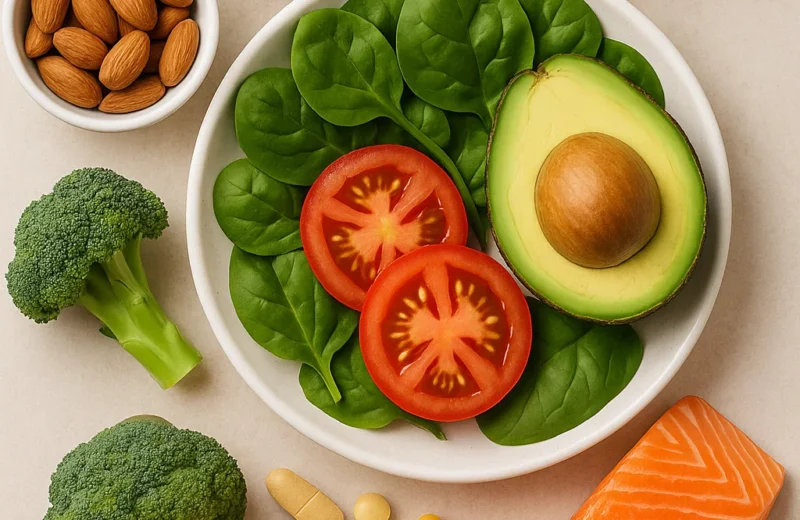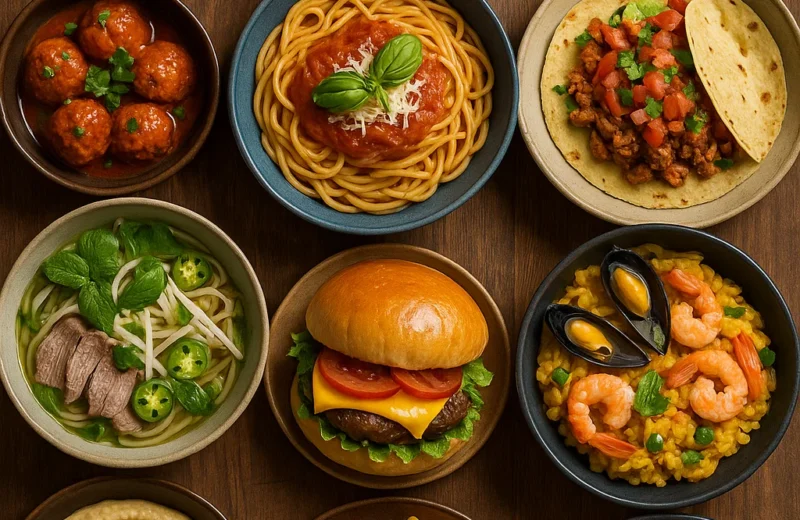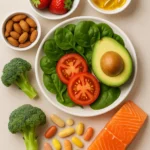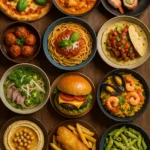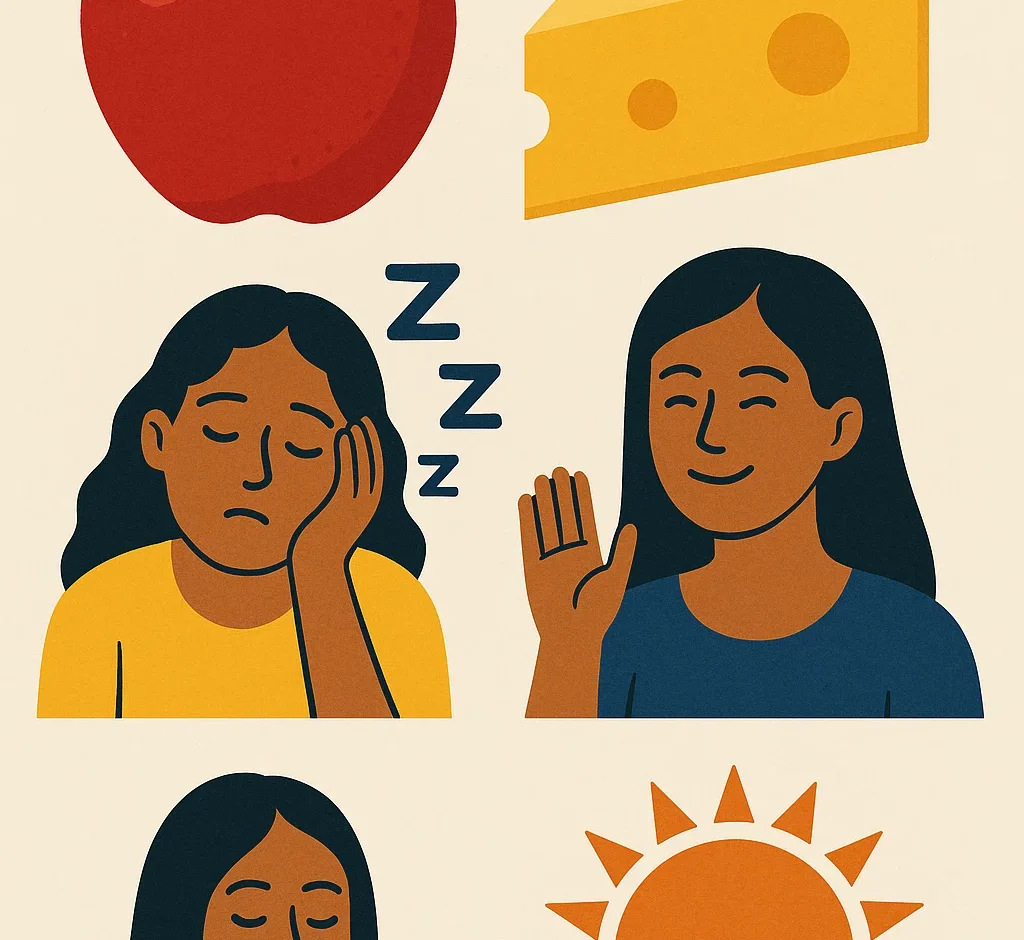
Let’s be real—when was the last time you felt truly energized? Not the “I had two cups of coffee” kind of buzz, but real, steady energy that lasts through your day without crashing?
If your answer is: “Not lately,” you’re not alone. Fatigue is one of the most common complaints in adults—and the truth is, vitamin deficiencies are often the hidden culprit. You don’t need another energy drink. You need to fuel your body the way it was designed to be fueled.
So in this article, we’ll walk through how vitamins directly affect your energy, which foods help restore it, and why energy isn’t just about calories—it’s about micronutrients.
🔬 The Real Science Behind Vitamins and Energy
Here’s what most people don’t realize: vitamins don’t create energy—they unlock it.
Your body generates energy by breaking down the food you eat. But that process relies on chemical reactions that need helpers. And guess who those helpers are? Vitamins—especially the B-complex group. Without them, your metabolism slows, your cells struggle, and your fatigue creeps in.
⚙️ The Energy Vitamin Powerhouse: Meet the B-Complex
Each of the eight B vitamins plays a unique role in energy metabolism:
| Vitamin | Role in Energy | Best Food Sources |
|---|---|---|
| B1 (Thiamine) | Helps convert carbs into energy | Whole grains, pork, legumes |
| B2 (Riboflavin) | Supports cellular energy production | Eggs, milk, mushrooms |
| B3 (Niacin) | Boosts metabolism and circulation | Chicken, tuna, peanuts |
| B5 (Pantothenic acid) | Helps produce energy enzymes | Avocados, yogurt, broccoli |
| B6 (Pyridoxine) | Balances mood and energy | Bananas, salmon, chickpeas |
| B7 (Biotin) | Metabolizes fats and carbs | Eggs, nuts, sweet potatoes |
| B9 (Folate) | Needed for red blood cell production | Leafy greens, citrus, beans |
| B12 (Cobalamin) | Maintains energy and nerve function | Beef, shellfish, dairy |
🛌 Feeling Tired All the Time? You Might Be Missing These Vitamins
Let’s look beyond B-complex for a moment. If you’re exhausted regularly, these other key nutrients might also be the issue:
- Vitamin D: A major player in mood and energy. Low D levels are strongly linked to fatigue, especially in winter.
→ Sources: Salmon, egg yolks, fortified milk, sunshine - Iron: Not a vitamin, but essential for carrying oxygen in your blood. Without it, your muscles and brain don’t get what they need.
→ Sources: Red meat, lentils, spinach, tofu - Magnesium: Helps convert food into usable energy and calms the nervous system.
→ Sources: Almonds, dark chocolate, pumpkin seeds, black beans - Vitamin C: Improves iron absorption and fights fatigue-related inflammation.
→ Sources: Oranges, strawberries, bell peppers, kiwi
🍽️ What to Eat When You’re Always Tired: A Real-World Meal Plan
Let’s turn the science into something you can eat—literally.
🥣 Breakfast
- Oatmeal topped with bananas and almonds
- Boiled egg
- Green tea
なぜそれが機能するのか: B vitamins, fiber, iron, magnesium.
🥗 Lunch
- Grilled chicken quinoa bowl with kale and avocado
- Side of orange slices
なぜそれが機能するのか: B6, folate, iron, healthy fats, vitamin C.
🍠 夕食
- Baked salmon with roasted sweet potatoes and steamed broccoli
- Optional: Dark chocolate square after
なぜそれが機能するのか: Vitamins D, B12, magnesium, and antioxidants.
🧘♀️ It’s Not Just Physical Energy — It’s Mental Too
Vitamins aren’t just about fighting body fatigue—they help your brain too. Ever feel foggy, unmotivated, or moody for no reason? Your B vitamins (especially B6, B12, and folate) are essential for neurotransmitter production. If they’re low, your brain chemistry is off.
Also, vitamin D deficiency is directly tied to depression and chronic fatigue syndrome. That’s why eating well doesn’t just help your body—it helps your mind stay clear and focused.
🛍️ Grocery Staples to Boost Energy Naturally
Stock your pantry with these go-to items for sustainable energy:
- 🍳 Eggs
- 🥦 Broccoli
- 🥜 Almonds
- 🐟 Salmon or tuna
- 🍠 Sweet potatoes
- 🫐 Blueberries
- 🫘 Lentils or chickpeas
- 🍌 Bananas
- 🥬 Spinach or kale
- 🍫 Dark chocolate (min. 70%)
🧠 Pro Tips for Long-Term Energy
- Eat small, balanced meals every 3–4 hours
- Combine protein + fiber + healthy fat each meal
- Limit caffeine and sugar—they spike, then crash
- Move your body. Even light walking boosts circulation and vitamin D from sun
- Stay hydrated—dehydration causes fatigue too
✨ Final Thoughts: Energy Starts on Your Plate
Energy isn’t just about how many hours you sleep or how many cups of coffee you drink. It’s about what’s fueling your body at a cellular level. And more often than not, food is the fix.
Instead of chasing temporary energy, focus on giving your body the raw materials it needs to thrive. Eat real, eat colorful, eat consistently—and your body will take care of the rest.
You don’t need extreme diets. Just the right mix of vitamins from the food nature intended.


